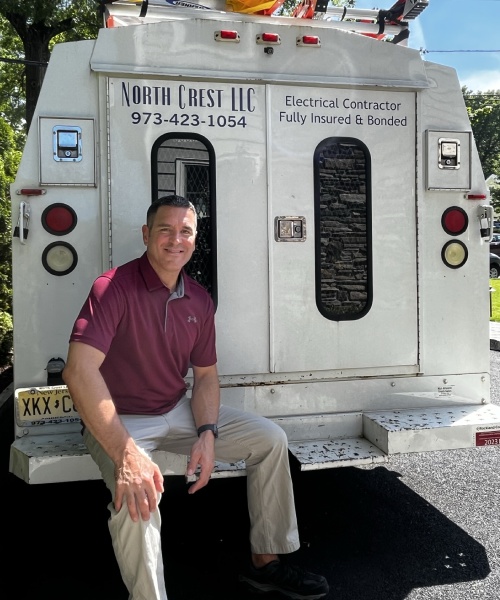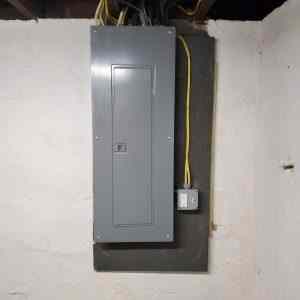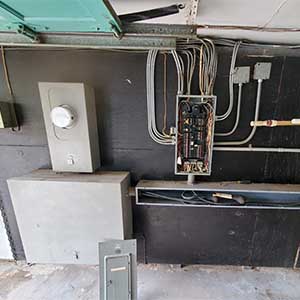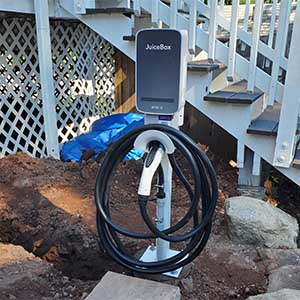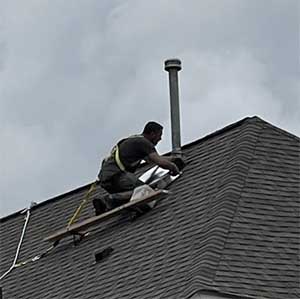Understanding Electrical Load Capacity
Is Your Home Overloaded?
Hey there, Ken here! As an electrician with 30 years of experience, I’ve seen all kinds of electrical setups in homes—some that work like a charm, and others that are seriously overburdened.
Today, I want to talk about something that often goes unnoticed until there’s a problem: your home’s electrical load capacity. Is your home overloaded?
Let’s dive in and figure out what you need to know!
Looking for emergency electrical work in Hawthorne, NJ? or surrounding areas? Give us a call today!
What Is Electrical Load Capacity?
First off, let’s break down what I mean by electrical load capacity. In simple terms, it’s the amount of electricity your home’s wiring and electrical panel can safely handle at one time. Every home has a set capacity, which is determined by the size of your electrical service (measured in amps) and the power needs of your appliances, lights, and electronics.
Older homes often have lower electrical capacities, usually around 60 to 100 amps, while newer homes generally start at 200 amps or more. So, if you’ve got an older home and you’ve recently added new appliances or gadgets, you might be pushing your system to the limit. And trust me, an overloaded electrical system isn’t something you want to mess around with.
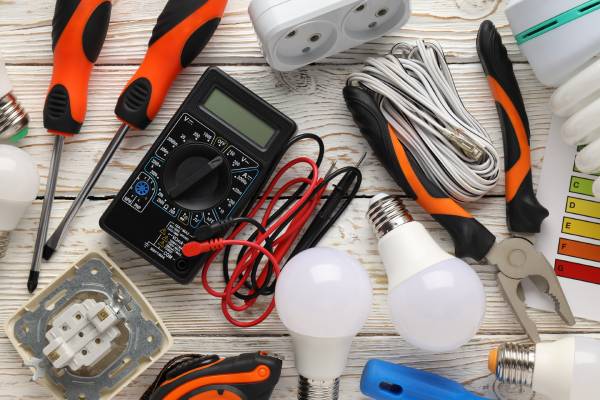
How to Assess Your Home's Electrical Load Capacity
So, how can you tell if your home’s electrical system is keeping up with your needs? Here are a few steps you can take to assess your electrical load:
1. Check Your Electrical Panel
Take a trip to your electrical panel (often in the basement, garage, or utility room) and look for a label that indicates the panel’s total amperage capacity. If it’s labeled for 100 amps and you’ve got a home filled with high-tech devices, central air conditioning, and a new electric vehicle charger, your panel might be struggling to keep up.
2. List Your Appliances and Electronics
Make a list of all the major appliances and electronics in your home. Include things like your HVAC system, kitchen appliances, washer/dryer, TVs, computers, and anything else that uses a decent amount of electricity. Once you’ve got your list, check the wattage of each item (usually listed on the appliance itself or in the manual). Add up the total wattage to get a rough estimate of your home’s electrical load.
To get an accurate understanding, you’ll need to convert watts into amps using this formula:
Amps = Watts ÷ Volts
In most homes, the voltage is 120 or 240 volts depending on the appliance. Use this calculation to get a sense of how much power you’re using, and compare that to your panel’s capacity.
3. Look for Warning Signs
Your electrical system often tells you when it’s overloaded—if you know what to look for. Here are some common signs that your home might be pushing its electrical limits:
Frequently tripping breakers: If your circuit breakers are constantly tripping, that’s a red flag. It means your circuits are handling more electricity than they were designed for, and your breakers are shutting things down to prevent overheating and fires.
Flickering or dimming lights: If your lights flicker or dim when you turn on a high-powered appliance, it’s a sign that your circuits are overloaded.
Buzzing outlets or switches: If you hear buzzing sounds coming from your outlets or switches, it could mean that they’re overheating due to an electrical overload.
Burning smells or scorched outlets: This is one of the more dangerous signs. If you smell burning plastic or notice scorch marks around your outlets, turn off the power and call an electrician immediately.
When Is It Time for an Upgrade?
If you’ve noticed any of the warning signs above, or if your calculations show that you’re pushing your electrical panel close to its limit, it’s probably time to consider an upgrade. But what does that involve?
1. Upgrading Your Electrical Panel
An electrical panel upgrade typically means increasing the amperage of your service. For many homeowners, this means upgrading from a 100-amp service to a 200-amp service. A panel upgrade will allow your home to safely handle more electricity, which is especially important if you’re planning to add any big-ticket items like a hot tub, electric car charger, or home theater.
2. Adding More Circuits
Sometimes the issue isn’t with your overall load capacity, but with the way your circuits are distributed. If too many devices are plugged into the same circuit, it can cause overloading and tripped breakers. An electrician can help by adding more circuits to spread out the electrical load more evenly across your home.
3. Future-Proofing Your Home
As technology continues to evolve, homes are becoming more reliant on electricity. Upgrading your electrical system now can save you a lot of headaches down the road. Whether it’s adding more capacity for future appliances, preparing your home for solar power, or simply ensuring everything runs smoothly, an upgrade will help future-proof your home.
Stop your search for roof venting in Rockland County and give us a call today!
Stay Safe—Get Professional Help
If you suspect your home might be overloaded, it’s crucial to get a professional assessment.
At North Crest, LLC, we’re here to help you keep your home’s electrical system running safely and efficiently.
Whether you need a panel upgrade, new circuits, or just a checkup, give us a call—we’ve got you covered!
Thanks for reading, and stay safe out there!
Hire a professional for your roofing ventilation project in Rockland County
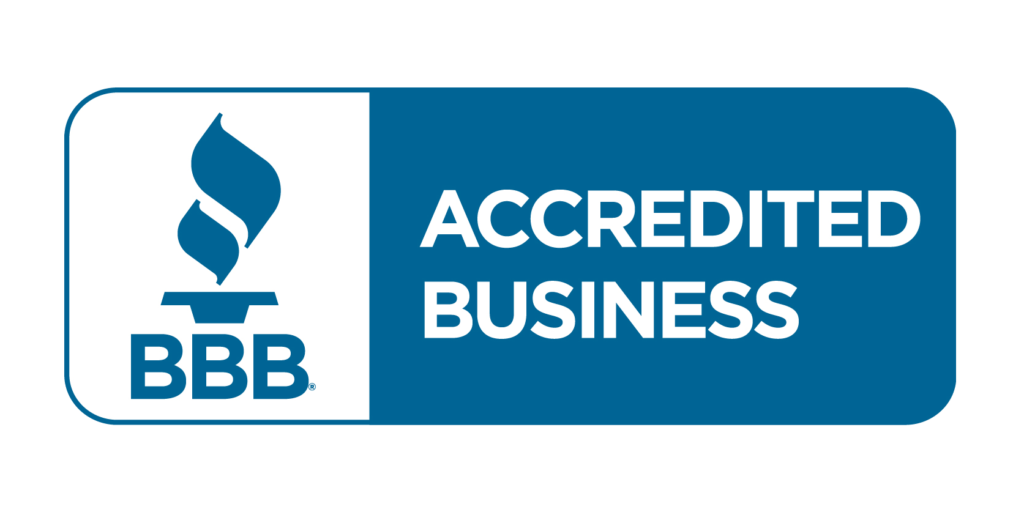
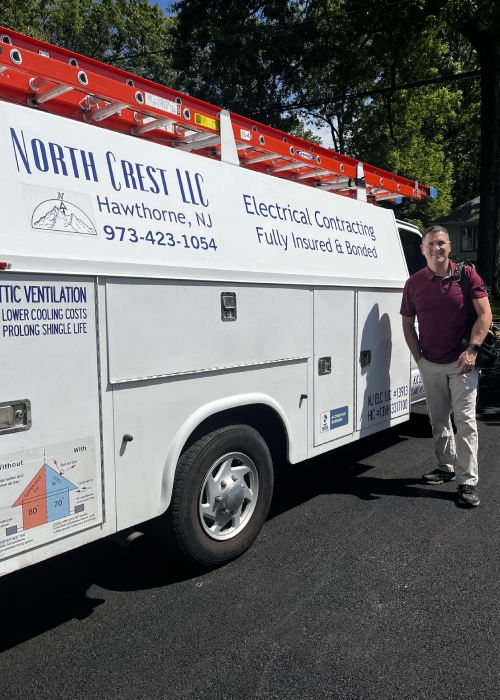
We Offer the Electrical Services in Rockland County, NY
and the surrounding areas.

North Crest, LLC
5.0
Ken re-wired my mother’s entire electrical system. He was professional , extremely efficient and the cost came in under budget. He was communicative every step of the way, explaining exactly what had to be done and why. I highly recommend North Crest, LLC.
Ken installed a 60 amp circuit out to the driveway for an electric car charger. He was extremely prompt and responsive. Showed up early. Job was done efficiently and the inspector remarked about how good the work looked. He also cleaned up our panel and made things safer.

North Crest, LLC
5.0
Ken was excellent to work with. We had an electric car charger installed in our garage and Ken was extremely knowledgeable and answered all our questions. His work work done flawlessly and efficiently. He was also very courteous and clean. I would recommend him for any job you need done!
-Ira M.

